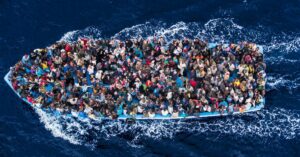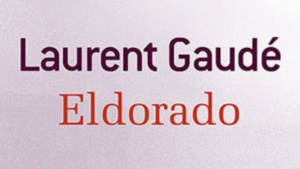Share
The case of the recent increase in German immigration to Paraguay is intriguing and raises a lot of questions. This subject lacks scientific exploration, however, the BBC, The Guardian, O Globo, and ABC (the latter two, Brazilian and Paraguayan journalism organizations) have explored this theme in the last two years. The news reports offer a glimpse of what, in a certain way, could be characterized as an “ideological migration movement”.
Although not all of the 26 thousand German citizens living in Paraguay have decided to move due to ideological reasons, since 2021, such motivation has been identified in a substantial part of the newcomers. During a BBC investigation last year, some German immigrants were willing to share the reasons that led them to establish their residence in the Latin American country. Two reasons stood out as the most important: disagreeing with Covid restrictions and mandatory vaccination in Europe; as well as feeling uncomfortable with Muslim immigrants at home.

Why Paraguay?
Migration movements are diverse and the decision-making processes behind them are complex. Among the reasons that led Germans to choose Paraguay were good weather, a welcoming population, and the knowledge of former German settlements in the region. One of them, called Nueva Germania, was a community built by Bernhard Förster and Elisabeth Nietzsche – the philosopher’s sister. The first settlers had a goal: to create an Aryan utopia overseas.
As reported by El País, the anti-Semitic racial experiment failed, however, the idea of creating a community of like-minded people in a foreign land found “fertile soil” in the minds of COVID-19 denialists. In the past, the settlers aimed to create a place surrounded by nature, with cheap land and no Jews. Now, the newcomers desired a place with freedom not to comply with COVID restrictions and no Muslims.
When analyzing this movement through the interviewees of different news reports, it is possible to notice the importance of the meso-level in the decision-making of these people. A network was created to help Germans settle in Paraguay, and the experience of other migrants motivated others to follow. Even though Paraguay has higher crime rates than Germany, the new immigrants mention feeling safer there, especially regarding the safety of women. The mass assaults during the 2015-2016 New Year’s Eve celebrations in Cologne, for instance, are used as an example of what the immigrants wanted to avoid by moving. For them, that demonstrated how multicultural Germany threatened their safety. Furthermore, Paraguay has a predominantly catholic and Christian population, which made German newcomers feel welcome in the country.
Ideological Migration(?)
Answering the question proposed in the title is not straightforward. Even though ideological reasons seem to be at the center of these newcomers’ motivations to move, creating typologies in migration studies is not always helpful. Two American studies published in 2014 (“How ideological migration geographically segregates groups” and “If He Wins, I’m Moving to Canada”: Ideological Migration Threats Following the 2012 U.S. Presidential Election”) investigate ideological migration as a result of political affinity (or the opposite) in the United States. If we consider one of the definitions brought by the article “How ideological migration geographically segregates groups”, we can consider the recent German movement towards Paraguay as such: “individuals who choose to live in communities with ideologies similar to their own to satisfy their need to belong”. However, the need to classify the movement is open for discussion, and it is crucial to remember that such ideologies don’t represent the totality of German citizens residing in Paraguay – but rather a specific group.


